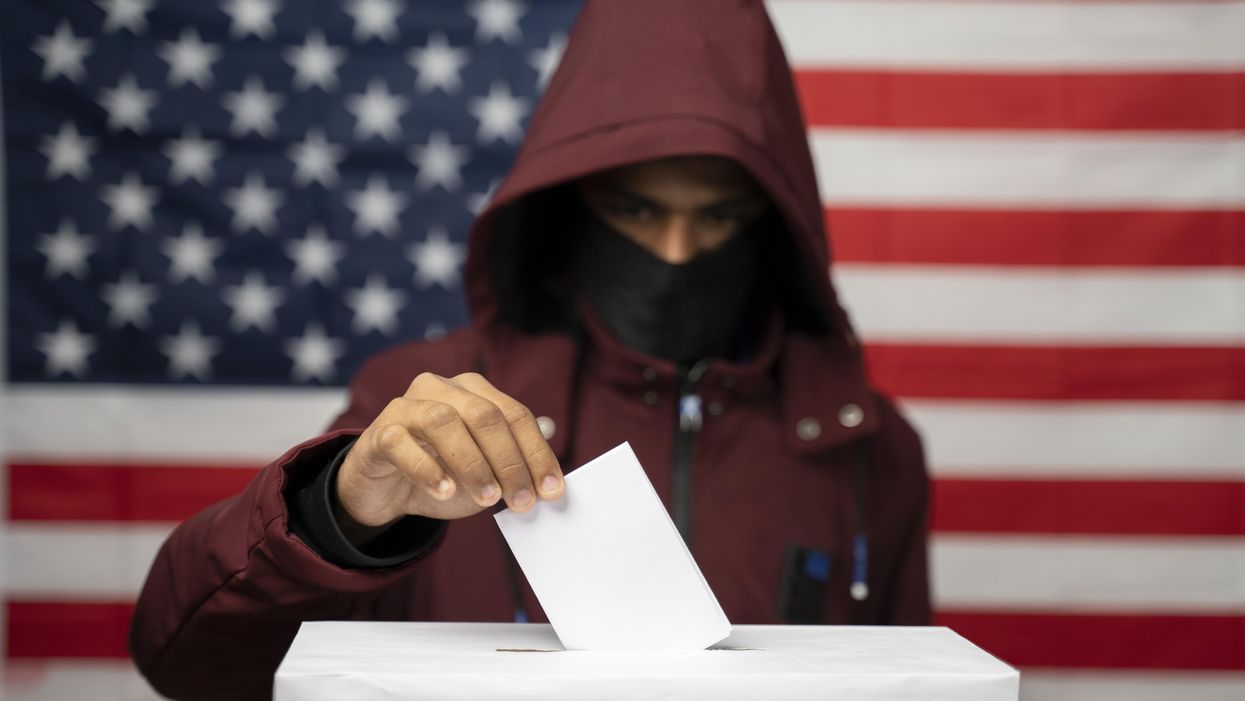Krucoff, a commercial real estate broker, ran unsuccessfully as an independent candidate to be the non-voting delegate from the District of Columbia in the House of Representatives.
It was just prior to my first midterm exam in microeconomics when I learned that a company ideally should keep producing so long as it can make money by doing it. In other words, once the marginal cost of production exceeds the marginal revenue from that production it is quitting time. And his concept applies beyond the world of production: When the potential cost of doing something (like voting) outweighs the potential benefit from that activity, then that activity makes no sense to do anymore.
Suppose I wanted to vote a few times, maybe in a different city or state, or as a different person, would I? In 2020, I voted in the District of Columbia where I live now and where I have lived for most of my life. However, as recently as the 2016 election I lived and voted in Maryland. Last November, could I have first voted at my present precinct in the District of Columbia, then driven a few miles to the north and walked into my old Montgomery County precinct and voted again? The answer is no, because Maryland canceled my registration. It turns out that 30 states (including Maryland) and the District of Columbia are member of a highly efficient and cost-effective non-profit called the Electronic Registration and Information Center. ERIC shared the fact that after I registered with the Board of Elections in D.C., Maryland canceled me. So, had I tried to vote twice in this manner I would have been unsuccessful and possibly arrested.
Now suppose I knew someone was not going to vote last year. Maybe that person passed away. Should I have attempted to vote for that person in addition to voting for myself? Here again the obvious answer is no. So long as I have a basic sense of risk versus reward, I should not do this. The potential marginal benefit of my one additional vote would not be worth the risk of me committing a crime that could put me in jail for multiple years in addition to incurring a significant fine.
Voting twice is illegal in federal elections under federal law. Voters who cast "votes more than once in an election" will be fined "not more than $10,000" and "imprisoned not more than five years, or both," according to federal law. The juice is not worth the squeeze. Go ahead and do it but do not expect it to be a popular course of action. You probably will not get caught but is it worth it?
Lastly, the miniscule benefit of an additional vote must be combined with the possibility that if one disregards the micro-econ analysis, then he or she also may be canceled out by a micro-econ denier on the other side of the aisle. Again, it is just not worth it unless one attempts to commit voter fraud in large numbers, and if someone tries that he or she increases his or her chances of getting caught by orders of magnitude. The squeeze is coming.
A significant cohort of congressional Republicans, led by our former commander in chief, have been blathering about voter fraud prior to our national election in November and even after the ugly insurrectional events of Jan. 6. They are correct that voter fraud could and, I think, should be made harder to commit. However, we all can rest assured that their macro concerns about voter fraud's pull on our elections are routinely pushed back by obvious individual voter cost benefit analysis inherent from micro-econ 101.


















 Senate Committee on Commerce, Science, and Transportation ranking member Sen. Maria Cantwell (D-WA) (R) questions witnesses during a hearing in the Russell Senate Office Building on Capitol Hill on February 10, 2026 in Washington, DC. The hearing explored the proposed $3.5 billion acquisition of Tegna Inc. by Nexstar Media Group, which would create the largest regional TV station operator in the United States. (Photo by Chip Somodevilla/Getty Images)
Senate Committee on Commerce, Science, and Transportation ranking member Sen. Maria Cantwell (D-WA) (R) questions witnesses during a hearing in the Russell Senate Office Building on Capitol Hill on February 10, 2026 in Washington, DC. The hearing explored the proposed $3.5 billion acquisition of Tegna Inc. by Nexstar Media Group, which would create the largest regional TV station operator in the United States. (Photo by Chip Somodevilla/Getty Images)
